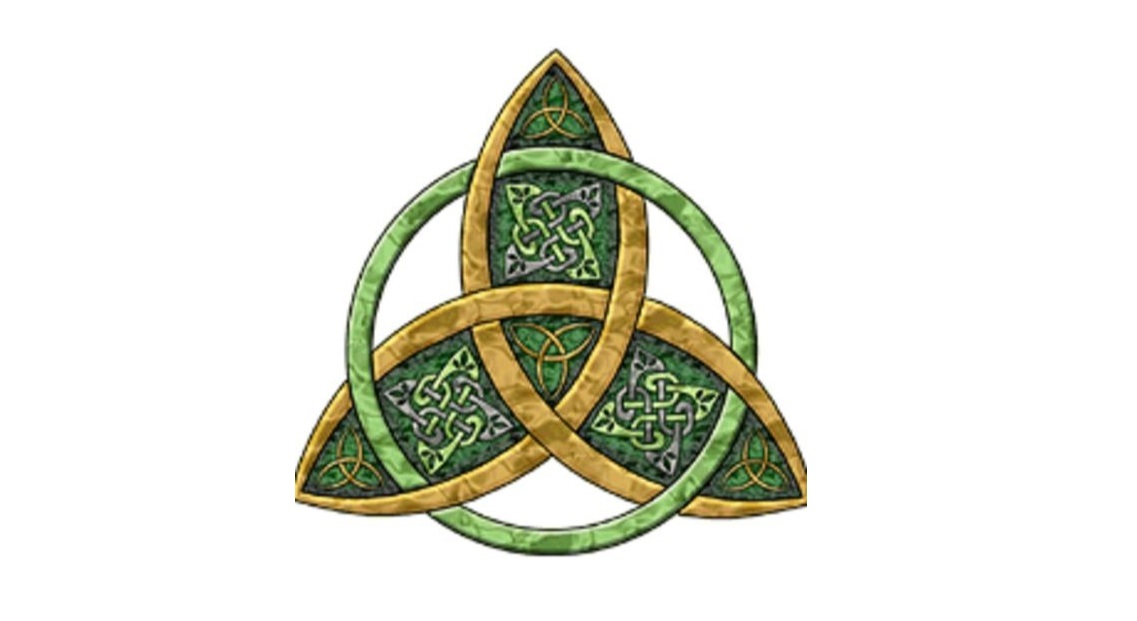Theology 201
The Impact of Augustine on Western Christianity
What Happened to Western Christian Theology?
Western Christian theology grew like a rogue branch splitting off the main trunk of the Christian community, like this branch on this tree. Photo credit: O12 | Pixabay.
It may surprise you to learn that these problems were introduced a long time ago by Augustine of Hippo (354 - 430 AD). Historians and theologians are now seeing his influence as impressive but problematic.
What did Augustine teach?
Because he didn’t fully understand Greek, Augustine made interpretive decisions into Latin that have been studiously questioned because he only knew limited Greek. He said that God predestined some people to heaven and others to hell, especially in his misunderstanding of Romans 9 - 11. See Peter Enns' short article on Augustine and Seraphim Rose's appreciation but criticism of Augustine also found in his letters now online. All Christian leaders before Augustine said that God is never coercive, and God’s grace empowers human free will to even reject Jesus, as you will see in this trove of quotations. See our summary of the early Christian teaching on Romans 9 - 11, and our notes on Ephesians 1:1 - 14 for more about those passages.
Moreover, Augustine defined original sin as inherited guilt rather than inherited corruption, and said unbaptized infants went to hell for their sharing in Adam and Eve's guilt, unlike the Eastern Greek tradition which left the question uncertain. This created tensions with Ezekiel 18, which says God will not count the sins of the fathers against the sons, and vice versa, and later Western theology. How did Jesus acquire a fallen human nature to heal it, while not also acquiring the transmitted guilt of Adam and Eve?
In addition, Augustine proposed a psychological model for the Trinity rather than a personalist or social model taught by Irenaeus and the Cappadocians, a rationality model for humanity, and a hierarchy of rationality of men over women. Augustine’s stress on rationality continues to influence people today. As an example, see how John Piper claims that women are less logical than men.
It didn't happen right away, but Augustine paved the way for Western Christianity to see human beings very pessimistically, and to understand God as the cause of both good and evil, God's character as desiring retribution at least as much as expressing love, hell as a prison in which God keeps people who want to be reconciled, and salvation as legal pardon from guilt. He was also the first theologian to give a justification for state-sponsored religious persecution against heretics. These are some reasons why The Anástasis Center seeks to go back to Athanasius’ understanding of the Nicene Creed (325 AD), before Augustine.
What is Christian Theology from the Time of the Nicene Creed?
Nicene theology uses a medical and restorative framework still used in Eastern Orthodoxy and some Catholic circles, as opposed to a legal and punitive framework familiar to most Protestants. It says that Jesus reveals God's desire to lovingly unite Himself with every single person. He heals and transforms human nature, undoing the corruption of sin in it, first in Jesus, and then in us, as He shares Jesus with us by the Spirit. This understanding was the foundation stone for Christians to say that God is 100% good and loving, and even how we experience God as a Trinity. Here is our short Atonement Theology 101 and another article which explain it well.
Nicene theology comes from a time of intellectual excellence and church unity, even across multiple languages and cultures. Christian teachers and theologians read Scripture and affirmed:
Human nature as originally good and inclined towards God
Sin as a corruption of human nature that disorders desires God originally made good
Jesus redeems fallen human nature in his own body, then shares himself with us by his Spirit
Human free will as constantly upheld by God in grace; God is not coercive
Hell as a state of being in which the purifying love of God becomes torment to those who resist
Each church’s tradition is still dynamically engaged with Nicene theology.
Roman Catholic
Roman Catholic tradition considers both Athanasius (c.298 - 373 AD), an architect of the Nicene Creed, and Augustine (354 - 430 AD) to be "doctors of the church," even though they represent different opinions and trajectories. Pictured (photo credit: Patrick Comerford) are seven "fathers of the church" above the south door of Lichfield Chapel, finished in 1340 AD. Athanasius is second from the right. Augustine is on the left.
Catholic theologians, such as Karl Rahner, Yves Congar, Henri de Lubac, Joseph Cardinal Ratzinger (Pope Benedict XVI), John Courtney Murray, Thomas Weinandy, and others of the "New Theology," have questioned Thomistic scholasticism. They advocate a return to Athanasius, the Nicene era, reading Aquinas and Augustine without a scholastic lens, and greater appreciation of the Orthodox East.
For example, Ratzinger corrected Augustine about how much we know about the fate of unbelievers for portraying God as too limiting. He criticized Anselm's satisfaction theory of atonement for portraying God as prioritizing His own honor above His love for human beings. Of course, he disagreed with the Protestant view that God needed to pour out His wrath on Jesus for portraying God as dealing out infinite retribution. And the modern Catholic Catechism no longer teaches the Augustinian theory of inherited guilt, although, in this assessment, it does not resolve the differences between various Catholic schools of thought.
Protestant
Calvin, in his Institutes, drew on Augustine (for example, on most accounts, double predestination), but high federal Calvinists and evangelical Calvinists differ with each other because of ambiguities in John Calvin’s own writings, and questions about whether Calvin was moving in a certain direction (towards John Chrysostom as in his Commentaries rather than Augustine as in his Institutes).
For whom did Jesus die? High federal Calvinism is well known for supporting limited atonement (the L in TULIP), which says Jesus died only for the elect. But Calvin affirms universal atonement in his commentaries on the Gospels. Also under discussion is whether the Puritans' pietistic, individualistic Calvinism departed from Calvin himself in some significant ways, such as defining "the elect" in individualistic terms, rather than corporate or categorical.
How does Jesus save us? Although popular evangelical opinion focuses on the death of Christ alone as atoning, Calvin says in Institutes 2.16.5 that the earthly obedient life of Christ, and his very humanity, is part of the atonement, as the patristic - Nicene theologians said.
One question then becomes: ‘Was Calvin a Calvinist?’ This is part of the dynamic, ongoing discussion among those who interpret and follow Calvin.
In the Lutheran tradition, a similar debate is happening now about Luther, since Luther, as an Augustinian monk, was also influenced by Augustine.
Orthodox
In the Orthodox community, the late Georges Florovsky (1893 - 1979), former Dean of St. Vladimir's Orthodox Seminary in NY from 1950 - 1955, called upon Orthodox scholars to sympathetically reevaluate the development of both Eastern and Western Churches in light of patristic sources. Since then, his students Alexander Schmemann and John Meyendorff, who each followed him into the position of Dean, have done so as well, along with Kallistos Ware and John Zizioulas. These efforts have contributed to a renewal of dialogue between East and West, and of interest in Christian theology from the Greek East. The resources below are provided in order of recommendation, for beginners.
Archbishop Lazar Puhalo, On Augustine, Brad Jersak | YouTube, May 14, 2014. Puhalo is retired archbishop of the Orthodox Church of America and founding abbot of the Monastery of All Saints of North America, in Canada. Augustine was not embraced by the Popes of his own day; Puhalo critiques Augustine’s ideas of double predestination and transmission of Adamic guilt. Puhalo claims that Augustine’s views were “pure Neoplatonism” and points out that Mark of Ephesus warned against Augustine. See also Archbishop Lazar Puhalo, Theology Made Simple: The Meaning of the Fall, Lazar Puhalo | YouTube, Feb 5, 2011.
Seraphim Rose, The Place of Blessed Augustine in the Orthodox Church, Saint Herman of Alaska Brotherhood | Amazon page, August 1, 2007, third edition. Seraphim Rose gives us a very helpful and readable explanation of how Augustine's theology was received by the Greek East at the time, and is regarded today. Rose pays special attention to Augustine's teaching on double predestination. See also Father Seraphim’s letters, published online by James O’Donnell at Georgetown University, which are on the subject of Augustine, for those who would prefer to not order the book.
John Strickland, The Rise of Anthropological Pessimism III. Paradise and Utopia Podcast | Ancient Faith Ministries, Dec 5, 2013. Strickland gives a podcast lecture with transcript which focuses on Augustine’s role in portraying humanity, the human condition, and human experience, as pessimistic. This influence later spread throughout Western theology, culture, and philosophy.
Bishop Photios Farrell, Reductio of the Hardened Augustinian Position: St. John Cassian. Energetic Procession blog, May 15, 2006. Farrell argues that Augustine’s teaching on double predestination — which eventuated in the Calvinist “limited atonement” — violates the Chalcedonian Definition, that Christ was consubstantial with all of us in our human nature.
John Arakaki, Plucking the TULIP (1) – An Orthodox Critique of the Reformed Doctrine of Predestination. Orthodox-Reformed Bridge, Aug 12, 2012. Arakaki presents the first of a series of readable online articles. Arakaki contrasts Irenaeus’ moderate view of the fall with Augustine’s catastrophic view. Arakaki gives ample citations to Orthodox and Reformed sources.
David Bentley Hart, The Doors of the Sea: Where Was God in the Tsunami? Eerdmans | Amazon page, March 15, 2011. In 2005, American Orthodox theologian and philosopher David Bentley Hart responded to the Asian tsunami of December 2004. Hart compares Eastern Orthodox and high federal Calvinist interpretations of this event, and shows the vast and important difference in dealing with God's character in the face of human suffering, natural disasters, and human moral evil.
David Bradshaw, Aristotle East and West: Metaphysics and the Division of Christendom. Cambridge University Press | Amazon page, December 27, 2004. A brilliant, dense, and authoritative account of how Augustine went wrong. Bradshaw examines Augustine’s lack of understanding the Greek term “energeia” and the Greek understanding of our ongoing participation in God’s “divine energies” by which we are already participating in God’s grace. Augustine thus developed a nature vs. grace distinction, an account of God showing grace to some and not others, and a monergism over synergism by which God deployed “double predestination.”
Matthew Baker and Todd Speidell, T.F. Torrance and Eastern Orthodoxy: Theology in Reconciliation. Wipf and Stock Publishers | Amazon page, November 5, 2015. This collection of essays is an excellent resource as various Orthodox scholars interact with, and constructively critique, the Scottish evangelical patristics scholar and theologian Thomas Forsyth Torrance who did much to advance Reformed and Orthodox dialogue.
Christos Yannaras, Person and Eros. Holy Cross Orthodox Press | Amazon page, April 1, 2008. Yannaras’ book is dense but rewarding; he insightfully critiques the development of theology and philosophy in the West.
More on God’s Goodness: Topics:
Here’s how to navigate this section on God’s Goodness. The Introduction focuses on the biblical presentation of Father, Son, and Holy Spirit; and the implications. Human Becoming and God’s Goodness spotlights creation and humanity, especially how God made humans as human beings and human becomings. Israel and God’s Goodness tackles big questions about God taking human life to protect Israel, and even why God created an Israel in the first place. Jesus and God’s Goodness explains God revealing Himself fully in Jesus, and addresses Protestant notions of limited atonement and double predestination as incompatible with God’s Triune character of love. Holy Spirit and God’s Goodness explores the divine person of the Spirit and the gifts of the Spirit. Human Destiny and God’s Goodness explains how desire and development are part of the outworking of human becoming, destiny, and God’s goodness. Fire and God’s Goodness explains why the portrayal of divine fire in Scripture is always God’s call to participate in refinement and purification. Human Evil and God’s Goodness explains why God is good by solving the problem of human evil in a loving way. Human Suffering and God’s Goodness explains why God is good because He suffers with us since the fall, and heals the deepest suffering behind the suffering.















